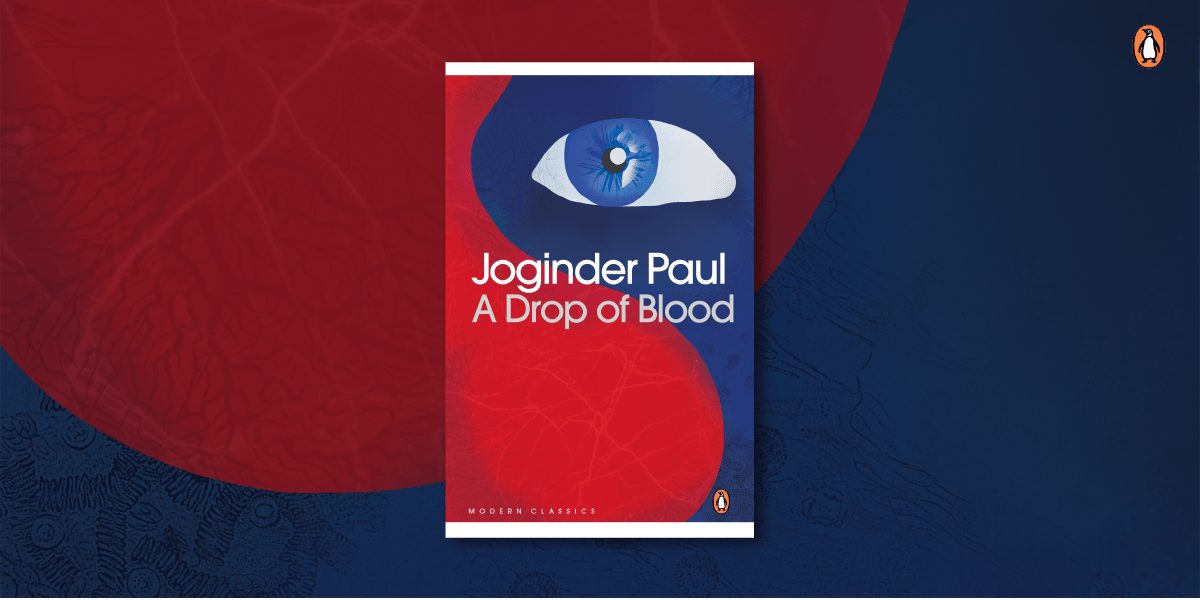
Mohan Karan has been blessed with exceptional good looks-and a rare blood type. An orphan with few connections, he finds that his degree in English literature is unable to secure him a proper job. However, he discovers he can make good money by selling his blood to a private blood bank. And while this opens up unexpected possibilities for this unemployed graduate, little does he realize that it all comes at great personal cost.
Here is an excerpt from the book!
Finally, he arrived at the porch of the people’s Blood Bank and stopped. he found himself staring at the back of an ambulance, standing under the porch, with a giant red cross on it. he wanted to turn away from it but, helplessly, he kept on staring.
As he continued to stare, he was taken with an unshakeable curiosity, as if his own blood, from head to toe, had begun to pulse with a singular question.
‘two thousand years ago . . .’
Karan’s thoughts were speaking to him again.
‘. . . that heavy cross was tied to the shoulders and arms of some virtuous human being and then, he was whipped repeatedly and made to walk miles barefoot through the public markets. then in some square, nails were driven through the palms of that honest, virtuous human and into that cross, and the heavy wood of that cross was drenched red, inside and out, with the sacred blood of that incomparable human being. the sacrifice of that great man is still alive today, even after two thousand years. his blood has become immortal!’
Karan’s own blood appeared afflicted to him.
‘But why, in this age, do the priests of gold tell every poor man that he is as great as christ? Why have they hammered nails and attached the cross to every single poor person? Why do the poor have to suffer the same, relentless anguish that uniquely belongs to God’s own son?’ Karan became exceedingly troubled at this thought.
‘if every poor person has to be tied to a cross then why does the colour of his blood fade? Why doesn’t he receive infinite credit for his sacrifice? Why are the doors of sainthood and immortality closed to him?’
After a few moments, a nurse with the red cross walked out in a hurry from the people’s Blood Bank building and got into the ambulance. even after the ambulance had departed, Karan could still see the red cross in his mind’s eye.
‘hello!’ the elderly clerk from the people’s Blood Bank, who had stopped at the doorway, called out to Karan.
‘have you come to give blood? . . . hello?’
Karan looked at him as if he was coming out of a trance.
‘oh . . . hello!’
As soon as he got his bearings and recognized the clerk, Karan’s voice took on the warmth of familiarity.
the two of them continued talking as they went inside the blood bank.
‘You will have to wait a little while,’ the elderly clerk explained to him as he entered his office. ‘two men are giving blood in the theatre right now.’
he sat down on his chair and offered Karan a seat in front of him.
‘What’s the matter? You look just as unsettled as my boss. And just like him, you don’t seem well. You haven’t started needing blood instead of giving it, have you?’ he spoke in a matter-of-fact tone.
‘how could a poor man take someone else’s blood, shree . . .?’
‘Acharya,’ the clerk offered his name.
‘shree Acharyaji. A poor man can’t even claim his own blood as his own.’
‘come now, if your blood wasn’t your own, you should have handed the money over to me instead of taking it yourself.’
Acharya opened the registry and began entering Karan’s details.
‘it’s taken you a while to return, hasn’t it? You haven’t found work, have you?’
This short, blistering novel launched Joginder Paul’s literary career, cleverly exploring the insidious ways in which the mighty habitually prey upon the vulnerable. Incisive in its observations, A Drop of Blood also ably tackles themes of female desire. Snehal Shingavi’s lucid translation makes this important work available in English for the first time. Get your e-book here to find out what happens next!






